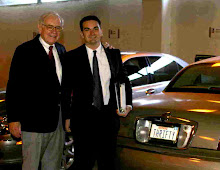A few thoughts on dividend policy
Imagine you are a sole proprietor and, as such, have a right to all the income your business earns. You would then have two options as to what to do with this newly acquired cash. You could reinvest the income in the business (retain earnings) or you could pay yourself, the individual, a large dividend. Which would you prefer?
Your preference ought to be determined by where you could best deploy that excess cash. If you as an individual see a great investment opportunity outside your business – say for instance shares of WAG selling at a huge discount - you might want to pay yourself a dividend to take advantage. But you should only do this if your business looks to be an inferior investment. That is, it would make no sense for you to pay yourself a dividend and buy WAG if your business is growing wildly, say for instance at a 40% annual rate and you could expand it should the business retain those earnings.
Such is the justification for Berkshire’s no-dividend policy. Mr. Buffett has always felt that he would be able to earn a return for Berkshire in excess of what the typical investor could earn should Berkshire pay them a dividend. Additionally, there is an obvious tax advantage to avoiding dividends, all else equal.
But in my opinion, this dividend-avoiding strategy only will work in the presence of rational, level-headed managers like Warren Buffett. Far too many managers will pay too small a dividend merely to leave themselves extra cash to play with, potentially squandering the funds through excessive compensation for themselves or perhaps poor acquisitions (which lead to higher compensation under the empire-building assumption).
Too much cash sitting around is very dangerous for the typical company, inviting managers to do foolish things with it as mentioned above. This phenomenon has come to be know as the “free cash flow problem” and was first documented by Harvard Professor Michael Jensen in “Agency costs of free cash flow, corporate finance and takeovers,” American Economic Review, 1986. Not everyone agrees with this theory, but to me it makes intuitive sense and is well-supported empirically.
So a dividend-paying stock is often an attractive investment to me, not just for the quasi-guaranteed return, but because it makes it that much harder for management to waste my money. Ideally, all managers would behave like Warren Buffett and allocate capital in such a way as to maximize my (the shareholder’s) return. But that is simply too idealistic. Perhaps this is one reason why, as is widely recognized, over time dividend paying stocks outperform.


3 Comments:
Andy,
Mizzou is blocking my emails to you as spam. If you have an alternate email address, let me know.
Thanks,
Chad
By Webmaster, at 28 July, 2006 06:40
Webmaster, at 28 July, 2006 06:40
I saw your blog in Mizzou and came by for a look-see. If you have not read it, you may want to look at Rob Arnott & Cliff Asness' "Surprise! Higher Dividends = Higher Earnings Growth". An older (2003) article from the Financial Analysts Journal.
By John, at 13 September, 2006 12:07
John, at 13 September, 2006 12:07
Hi though your comment over the squandering of money is justified but in situation as present today it makes sense for the company to stop paying dividend as it would help in releasing that extra cash to support its current working needs and maintain a safe debt rating.These two consideration will depend to some extent on the cost of capital though which in times like these is quite high.
By Niks, at 09 March, 2009 12:49
Niks, at 09 March, 2009 12:49
Post a Comment
<< Home